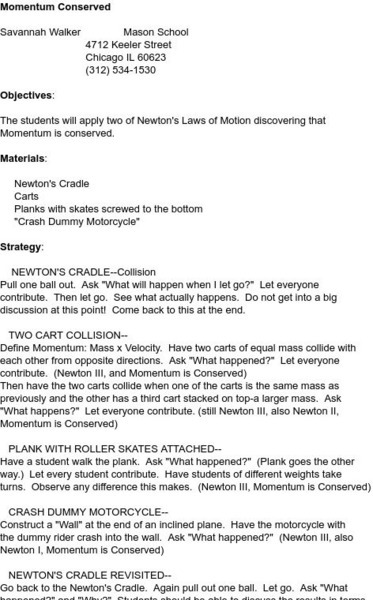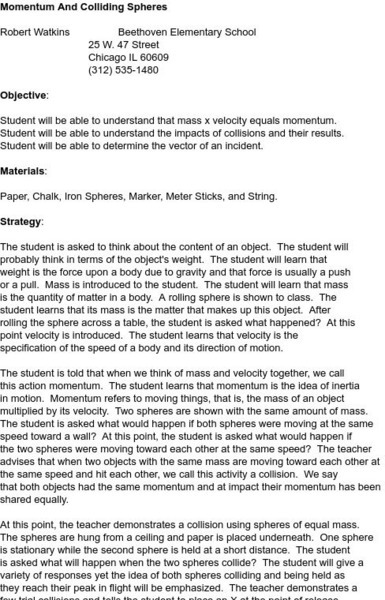Hi, what do you want to do?
Khan Academy
Khan Academy: Inelastic Collision Review
Review the key concepts and skills for inelastic collisions. Understand how to determine if a collision is elastic or inelastic.
Science and Mathematics Initiative for Learning Enhancement (SMILE)
Smile: Momentum Conserved
This site by the Illinois Institute of Technology gives a Lab activity in which students use a variety of toys to discover Newton's second law and momentum conservation. Newton's cradle, skate boards, and a toy motorcycle are incoporated...
Science and Mathematics Initiative for Learning Enhancement (SMILE)
Smile: Colliding Spheres
This lab activity from the Illinois Institute of Technology lets students investigate the impact of collisions upon the velocity and momentum of the colliding objects. Requires understanding of vectors.
Khan Academy
Khan Academy: What Is the Maxwell Boltzmann Distribution?
In a gas, there are lots of molecules traveling at lots of different speeds. Here's a framework for thinking about that.
Curated OER
Science Kids: Science Images: Johannes Kepler
This image shows Johannes Kepler, a German astronomer famous for his laws of planetary motion. Check out our Johannes Kepler facts page for more information.
Physics Aviary
Physics Aviary: Practice Problems: Ground to Wall Soccer Kick Problem
Students must determine where a soccer ball will hit a wall based on the speed with which it is kicked. Students will also need to find the time in the air in milliseconds. This problem does not take place on Earth.









